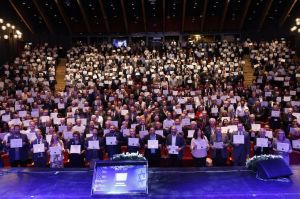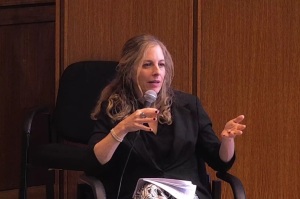What Should We Teach About Creation?
The following is an edited transcript of the audio.
How far should we go in teaching creationism in the church? How important or unimportant is it?
I assume the "-ism" on the end of creation has an agenda in terms of the age of the earth or the age of man or whatever.
Let me just say a few general things.
1) We should teach without any qualification that God created the universe and everything in it. It wasn't always here. It didn't spontaneously emerge from a big bang alone, however God did it. God did it. That's clear, and everybody who believes the Word should preach that.
2) Secondly, I think we should preach that he made it good. There was no sin in it, when he first made it.
3) Thirdly, I think we should preach that he created Adam and Eve directly, that he made them of the dust of the ground, and he took out of man a woman. I think we should teach that. I know there are people who don't, who think it's all imagery for evolution or whatever.
And we should teach that man had his beginning not millions of years ago but within the scope of the biblical genealogies. Those genealogies are tight at about 6,000 years and loose at maybe 10 or 15,000. So I think we should honor those genealogies and not say that you can play fast and loose with the origin of man.
That's not the age of the earth issue there. That's the origin of what is a human being, when did that human being come into existence. I think we should say he came into existence by God's direct action and that it wasn't millions of years ago. That was within the scope of these genealogies.
Now, when it comes to the more controversial issues of how to construe Genesis 1-2 about how God did it and how long it took him to do it, there I'm totally sympathetic with a pastor who is going to lay his view down, having studied it, and is going to say to his people, "Here is my understanding of those chapters. These six days can't be anything other than six literal days, and so that's how long God took to do it. And this universe is about 10 or 15,000 years old. Though it looks old, that's the way God made it. He made it to look old," or something like that.
Or he might take another view that these days are ages.
Or he might take Sailhamer's view, which is where I feel at home. His view is that what's going on here is that all of creation happened to prepare the land for man.
In verse 1, "In the beginning he made the heavens and the earth," he makes everything. And then you go day by day and he's preparing the land. He's not bringing new things into existence; he's preparing the land and causing things to grow and separating out water and earth. And then, when it's all set and prepared, he creates and puts man there.
So that has the advantage of saying that the earth is billions of years old if it wants to be-whatever science says it is, it is-but man is young, and he was good and he sinned. He was a real historical person, because Romans 5 says so, and so does the rest of the Bible.
That's where I am, and I think every pastor should go ahead and say what he believes. But how do you define who gets on your eldership, for example? Who gets a teaching office in your church? I'm inclined to not draw that too narrowly.
But I could be wrong about that, you know. I'm 63 years old, and I've never preached through Genesis yet. And I'd like to! I'm going to finish John, and then maybe the next thing I'll turn to, if the elders let me stay around that long, would be Genesis.
We need to give our people help in this.



























